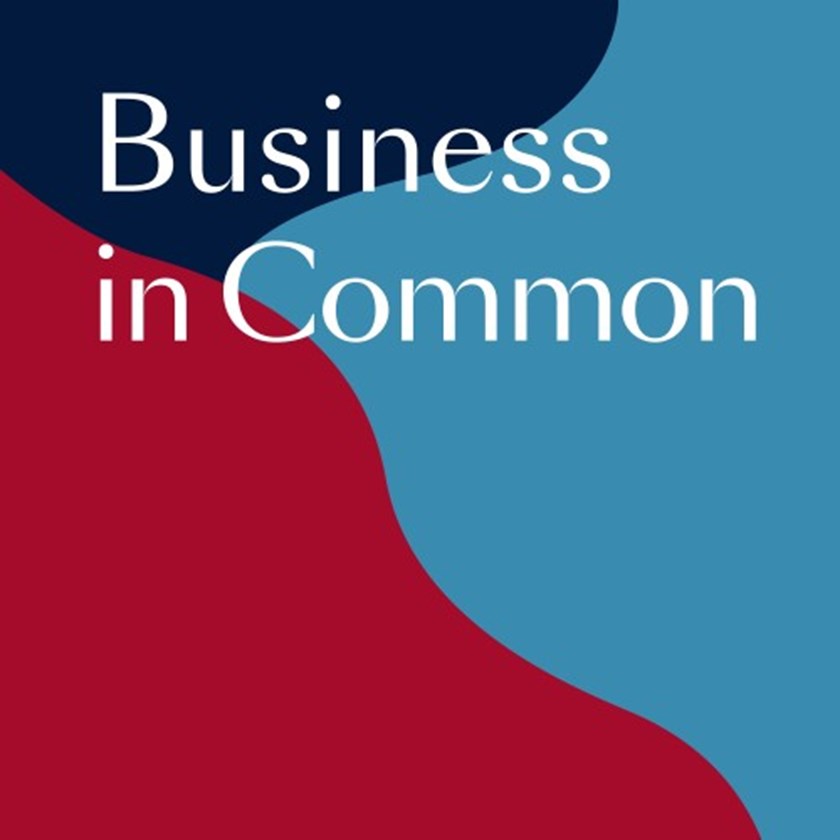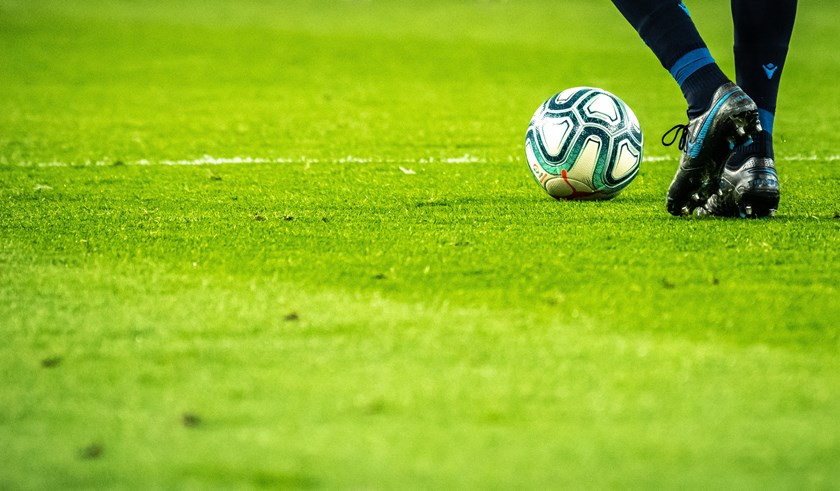Inn the Field of Play - January 2016: IAAF - New Year's resolutions - Rebuilding trust
News

After an annus horribilis, the International Amateur Athletics Federation (IAAF) has seen in the New Year with two clear statements of intent. On 5 January IAAF President, Lord Sebastian Coe, set out its Road Map to restore trust in the organisation and the sport more widely, while two days later its Ethics Board banned four officials from the sport for life. Julian Pike looks at whether the IAAF has turned a corner and what rocks in the road still lie ahead?
Lord Sebastian Coe when taking office surely could not have envisaged the first four months of his Presidency of the IAAF being quite as terribly tumultuous as they actually unfolded. As basket case inheritances go, they do not come any worse.
Lurid allegations of serial drug cover-ups and failures to process expeditiously or at all doping cases made by ARD, the German media company, and The Sunday Times, were followed by the damning WADA report into the state-sponsored drug abuses in Russia and the connivance of IAAF officials. Last week's second report from WADA made the specific finding that the IAAF's Council could not have been unaware of the extent of doping in the sport and the lack of enforcement of anti-doping rules.
French criminal proceedings into the outgoing President, Lamine Diack, and others alleging blackmail began and remain ongoing. December saw The Thick of It meet WC2 with the release of an email apparently showing a close colleague of Lord Coe’s, Nick Davies, suggesting manipulating the release of Russian drug results in 2013 so as to avoid them becoming public before the Moscow World Championships in that year. Davies, who has denied any wrongdoing, has temporarily stood aside and awaits the findings of the IAAF’s Ethics Board.
Lord Coe himself was not entirely above criticism. Whilst there has been much speculation as to what he did or did not know about the host of allegations being levelled at the IAAF and the sport more generally, his “declaration of war” attack on the ARD/The Sunday Times exposé rebounded badly, especially with the publication of the WADA report heavily critical of Russian athletics and the IAAF. That said, WADA's second report undermined the scientific basis relied upon by the media companies. The report agreed with the IAAF finding that the IAAF's rebuttal of the scientific claims made by ARD and The Sunday Times were sound. For an individual so politically astute, it was also surprising that he allowed his hugely long association with Nike to become a distraction when surely it should have been clear that retaining an ambassadorial role with Nike was, in perception terms if not in reality, incompatible with his new Presidential role.
Whilst perhaps less compelling, the suggestion in internal Nike emails that he may have spoken up for the hometown of Nike, Eugene, to be awarded the World Athletics Championships for 2021 provided another point of attack. To round matters off, The Sunday Times published with little fanfare on 3 January that the IAAF had also sent warning-off letters to the original ARD journalist about him making further adverse allegations. Such tactics typically smack of shooting the messenger and are characteristic of an organisation with a thin skin.
None of this boded well for the IAAF beginning the New Year on an upbeat note. But yet Lord Coe’s message issued on 5 January was realistic, honest, yet positive. He said:
“I am President of an international federation which is under serious investigations and I represent a sport under intense scrutiny. My vision is to have a sport that attracts more young people.
The key to making that vision a reality is creating a sport that people once more trust in. Athletics must be a sport that athletes, fans, sponsors, media and parents alike know is safe to compete in on a level playing field and one in which clean effort is rewarded and celebrated.”
Lord Coe’s Road Map (see below) recognised that problems existed in both the IAAF and within the sport. In so doing, it further recognises the need for different solutions to these distinct problems. Importantly, what the Road Map discloses in setting out time lines for each of the ten general principles is that much of the work has already been well underway with clear end dates, mostly in mid-2016, making this much less a statement of aspiration. It demonstrated that even while enduring an autumn from hell, Lord Coe and his team have been hard at work; effecting change behind the scenes to bring about the radical overhaul that all can see is needed.
In this Road Map, it is possible to see some critical change management taking shape which any organisation seemingly so abject desperately requires:
- Building a new organisational culture: all five principles relating to the IAAF demonstrate a drive to create a new culture. Culture comes from the top. Lord Coe has made no secret of his desire to bring about change to an organisation in crisis. Changing the culture, changes the performance and perception of the organisation;
- Transparency: as with many organisations, an international sports federation has to be transparent in almost everything it does. It is this which helps to give it its credibility and authority. One only has to watch FIFA unravelling to see the value of transparency;
- In orchestrating a “forensic review of operations and finance” this suggests an organisation willing to uncover and root out wrongdoing wherever it may be. This has the effect of removing those that do not belong in a remodelled organisation, as well as shining a bright light on corrupt and 'Spanish practices' alike;
- For both internal and external consumption, it must demonstrate as a matter of practice that it will no longer tolerate misconduct and behaviours associated under the previous regime. The lifetime bans for the four officials set a standard, when finding that the four had “conspired to extort what were in substance bribes from the athlete by acts of blackmail.”
As for the new principles addressing competition, there is a clear commitment to independence and accountability, backed with increased resources. These are all laudable and to be welcomed. The proof of change will ultimately be found in the effectiveness of the new integrity unit and its investigatory work. Doubling the anti-doping budget from $4m to $8m sends a clear message. However, no doubt restrained by budgetary requirements, it is open to question how far short this sum remains as against that which is required to tackle doping as effectively as is possible, it being naïve to think it will ever be eradicated completely.
Nor can the IAAF be thought of as being out of the woods. It still faces some potentially hugely damaging issues in the coming weeks and months including:
- WADA's excruciating second report specifically about the IAAF's failings will lead inevitably to further scrutiny of what the likes of Lord Coe knew or should have known. What senior IAAF Council members knew about Lamine Diak's “informal, illegitimate governance structure” remains to be seen;
- The outcome of the French investigation may lead to criminal charges being brought against very senior IAAF figures, including ex-President Lamine Diack, who is currently facing allegations of “active corruption”. This is likely to be particularly difficult leading to further calls as to what Lord Coe knew and when given he was a Vice-President at the IAAF for nine years prior to becoming President;
- It will have to decide what it intends to make public on the back of its “forensic review of operations and finance”. If there are further revelations, will it hand over relevant information to the authorities and let matters take their course? The IAAF’s co-operation with the French to date suggests such an approach is likely to be followed;
- Adidas' decision to withdraw its sponsorship is a major blow, even if the lost income has been underwritten. While the risk of contagion amongst other sponsors cannot be ruled out at this stage, the IAAF is still going to have to look in the long-term to replace Adidas and its cash input. Whether the turn-around plan is strong enough to convince new sponsors remains to be seen;
- With Rio 2016 in July, the IAAF will need to decide relatively quickly whether to re-admit Russia to the sport so that its athletes can compete at this summer’s Olympic Games. Whilst there are likely to be many innocent Russian athletes adversely affected by a ban, it is easy to imagine the criticism if Russia is re-admitted so speedily. An individual athlete found guilty of doping, without good mitigation, is now facing a four-year ban. To ensure its own credibility, the IAAF cannot effectively hand out a ban which lasts less than a year in respect of a country found guilty of systemic state-sponsored drug abuses. Such a ban will adversely affect innocent athletes, but it is a reasonable cost when the wider interests of the sport are considered, not to mention its own future; and
- The publication of the Ethics Board’s investigation into Mr Davies: whatever the decision of the Ethics Board, this will in all probability be a difficult one to win. If Davies is cleared, the IAAF is likely to be accused of a whitewash. Found guilty, given the closeness of Davies to Lord Coe, this will lead to further questions of what the latter knew and when.
This list does not include expediting outstanding drug tests; instituting bans (four more Russians have been banned this week); reassigning medals; expunging records fuelled by drug abuse, all of which should happen as quickly as possible if the IAAF is to make good Lord Coe's vision of a sport that the public can have trust in once again.
Lord Coe has made it clear that he considers he is the man capable of turning around the IAAF’s fortunes and those of the sport. He has put his own hitherto unblemished reputation and credibility at stake. There can be no doubt that he continues to invest a huge amount in the sport with which he has had a life-long love affair. If anyone is capable of providing the leadership to turn around such an ailing organisation, regarded by many as equal to or worse than FIFA in terms of cultural and moral bankruptcy, then Lord Coe is the man. Dick Pound, President of WADA's Independent Commission, certainly is one influential person who agrees.
If the first four months were tortuous, 2016 has started better, albeit with plenty of further bad news emerging. There is a vast amount to do in order to rebuild the trust in the governing body and the sport. Lord Coe and his team have made a start. The next six months remain pivotal.
The IAAF Road Map
Building trust in the governing body
1. Organising the governing body so there are clear lines of responsibility.
Timeline: began immediately after presidential election and will be completed mid-2016 with the appointment of a new CEO.
2. Forensic review of operations and finance.
Timeline: forensic accountants from Deloitte and the leading legal firm Freshfields began work in November at the IAAF HQ. It is being overseen by Paul Deighton, former CEO of LOCOG and UK Government Minister. Delivery of report to IAAF Council in March. Completion mid-2016.
3. Greater accountability and vetting of IAAF officials.
Timeline: vetting process to be concluded and new Commissions and Special Advisory Groups to be in place by mid-2016.
4. More transparency and communication from the independent IAAF Ethics Board (formerly Commission).
Timeline: changes to the Procedural Rules and the Statutes of the IAAF Ethics Commission were approved by IAAF Council on 26 November with immediate effect.
5. Rewriting the IAAF Constitution to make sure it is modern, fit for purpose and capable of delivering the guidance and protection that is required.
Timeline: this process is underway but a new Constitution needs the approval of the IAAF’s Member Federations. The next IAAF Congress takes place in London in August 2017.
Building trust in competition
1. Establish a separate integrity unit for athletics that ensures greater independence in reviewing key issues impacting upon the integrity of competition such as doping, corruption, betting and age manipulation.
Timeline: integrity unit to be operational before the 2016 Olympic Games.
2. Double the anti-doping budget ($4m to $8m).
Timeline: upon establishing the integrity unit in mid-2016.
3. Double the current international testing pool of athletes to one thousand athletes.
Timeline: upon establishing the integrity unit and doubling the budget in mid-2016.
4. Dedicate greater resources to investigating doping schemes in athletics involving athlete support personnel, including employing specific investigative expertise within the integrity unit.
Timeline: upon establishing the integrity unit and doubling the budget in mid-2016.
5. Ensure greater accountability of Member Federations in anti-doping and other integrity-related matters, with closer monitoring by the IAAF and sanctions to be imposed by the IAAF Council for serious non-compliance (e.g. suspension from membership or ineligibility for major championships).
Timeline: with immediate effect.
If you require further information on anything covered in this briefing please contact Julian Pike ([email protected]; 020 3375 7217) or your usual contact at the firm on 020 3375 7000.
This publication is a general summary of the law. It should not replace legal advice tailored to your specific circumstances.
© Farrer & Co LLP, January 2016







